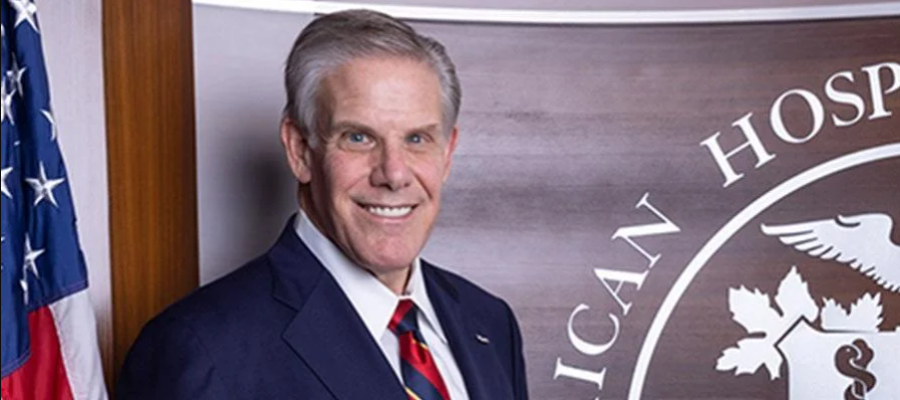Unity, Purpose and Resolve Will Drive AHA’s 2025 Annual Membership Meeting

We look forward to welcoming hospital and health system leaders to our 2025 AHA Annual Membership Meeting in Washington, D.C., in less than two months.
While the meeting venue will be familiar to attendees who have participated in the conference recently, make no mistake, our nation’s capital is a very different place than it was last year. With new leadership and a new agenda in Washington, the stakes are high as there are a number of opportunities and challenges coming at hospitals and health systems.
Our top priorities are clear. We must ensure continued access to health coverage for vulnerable populations and the financial sustainability of hospitals and health systems so they can deliver the care that people and communities depend on.
At the top of the list this is preventing potentially devastating cuts to the Medicaid program and extending the enhanced premium tax credits — which expire at the end of this year — so that millions of low- and-middle-income individuals can purchase affordable private insurance on the health care exchanges. As you know, we are putting on a full court press to prevent potential cuts to Medicaid, which is a lifeline for not only providing access to so many vulnerable people — from children and babies to the disabled, veterans, seniors and nursing home patients — but also to so many hard working, low-income folks, whether they are farmers, ranchers or single moms.
Other priorities for supporting the financial health of hospitals and their ability to care for patients include protecting the 340B Drug Pricing Program that requires drug companies to provide certain hospitals with discounted prices when buying outpatient medicines, and preventing so-called Medicare site-neutral payment policies, which if implemented would reduce access to critical health care services, especially in rural and other underserved communities.
These steps to protect access to care are also fundamental to our work to address disparities in health outcomes. This work ensures the highest quality of care for all patients in every community.
The stories of our patients’ and caregivers’ challenges are central to our message. For all of these issues and many others, we need to make the case to our lawmakers about the real-world impact their proposals would have on the people and communities they represent.
That’s why this year’s Annual Membership Meeting, perhaps more so than any other in recent years, is so pivotal. It’s an important opportunity for us to unite and deliver a powerful message to lawmakers as we continue to make the case for protecting the ability of hospitals and health systems to deliver the care patients and communities depend on.
We are putting finishing touches on the final program for the meeting, but you can count on insightful conversations with top policymakers, legislators and thought leaders on the most pressing issues facing our field and our country. You’ll also have the opportunity to connect with colleagues from across the nation to share strategies on innovative efforts that are transforming the way we deliver care to patients and communities.
We hope you can join us May 4 – 6 and be a part of the important story we must tell. It’s about highlighting the tremendous work caregivers do every hour of every day, preserving access to the 24/7 care and services that only hospitals and health systems provide, and protecting the special role hospitals and health systems play as cornerstones of their communities throughout the country.
With so much at stake in the coming weeks and months, it is vital that we continue to face health care’s challenges together, speaking as one voice to protect the blue and white “H” that is a beacon of health, healing and hope in every community across the nation.
As AHA’s 2025 Board Chair Tina Freese Decker reminds us, “We can do hard things.” Our field has risen to meet many difficult challenges before, and we can do it again as we navigate through these new threats and continue to work to advance health in America.

